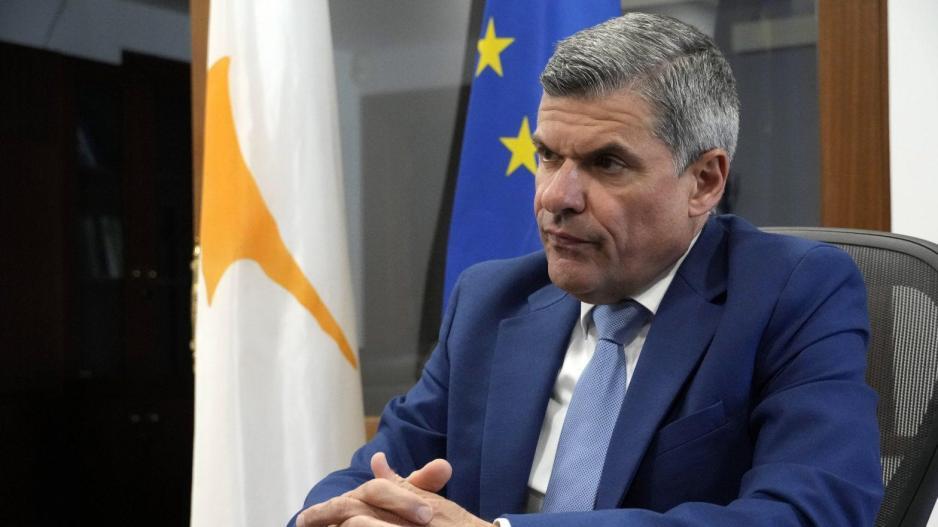The Great Sea Interconnector, a critical electricity project, faces significant challenges but promises to reduce energy costs in Cyprus, according to Energy Minister George Papanastasiou.
In statements at the House of Representatives, after an 18 June session of the Parliamentary Committee on Energy, Papanastasiou referred to the project's progress, funding, and future steps, emphasising its potential impact on Cypriot consumers.
The Great Sea Interconnector, is an undersea cable project aiming to link the electricity grids of Cyprus, Greece, and Israel.
While the government has yet to decide whether to become a shareholder in the project by investing €100 million, it is already underway. Approximately 50 kilometers of the cable have been constructed, with further studies planned, including a seabed survey over the next one to two months by the construction company. As the Minister said, the cable, the project's most significant expense, was projected to cost around €1.4 billion, including installation.
The Minister also said that so far, around €160 million of the €657 million granted by the European Commission has been disbursed. The remaining €1.3 billion needed for the project will be sourced from investors in the form of loans. According to a previous regulatory decision, 35% of this cost will be borne by Greek consumers and 65% by Cypriot consumers.
Papanastasiou added that by late June, a cost-benefit analysis focusing on Cypriot electricity consumers was expected from the project's operator, the Independent Power Transmission Operator (IPTO) of Greece. As he said, once this study is received, it would be evaluated with local stakeholders and a specialised external firm.
"If the results are positive, Cyprus will determine its involvement as a shareholder in the project. Being a shareholder allows Cyprus to shape decisions impacting the infrastructure's operations, directly affecting consumers in Cyprus," he said.
Addressing concerns raised in the Parliamentary Committee, Papanastasiou acknowledged that a project of this magnitude, with a 30-40 year horizon, comes with many challenges and assumptions.
“Despite these challenges, the project is of significant interest to the Republic of Cyprus”, he added,
He also recalled that the European Commission has designated it as a project of common interest, since it aims to connect the grids of all member states. Cyprus is the only member state not yet interconnected with another member state.
Regardless of Cyprus' decision on whether to participate as a shareholder, the project remains regulated, with previous decisions allowing its construction to proceed. "It is a private project at this stage, but it directly affects Cypriot consumers," Papanastasiou noted.
The Minister also said that the Great Sea Interconnector will provide an additional energy source for Cyprus and potentially facilitate electricity exports. Papanastasiou emphasised that this added source would foster a competitive market, driving down electricity costs for consumers. He added that the Cyprus Energy Regulatory Authority (CERA) will determine when cost recovery from consumers can begin, being mindful of current high prices.
(Source: CNA)









